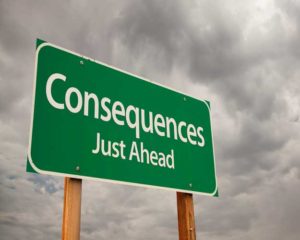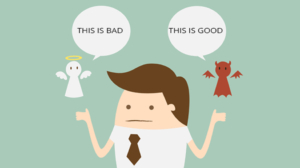Abstract

Without skin in the game (Risk) the OUD (Opioid use disorder) patient has no real consequences and that’s the way they want it! Many patients who have OUD have limited funds or access to transportation and may not even have a job, so all the consequences, of fees transportation and even living expenses go to the helper not the patient. Without consequences, patient compliance is much less than if they are held accountable for their actions such as relapse and associated fees, being late or missing appointments, paying for their visits or therapy, maintaining proper insurance and especially doing the things that help them get better such as working and taking care and responsibility for themselves.
The person who has OUD or (Opioid use disorder) has an actual disease. But they don’t think they do. They do not usually admit that they are not thinking right because they are adults and feel that they are fully functional but they are not. The disease is caused by a chemical (opioid) which has damaged their brain.
In order for the patient to get better, their brain has to heal and rebuild the proper pathways in order to function properly.
The parts of the brain that are damaged are; the Limbic system (Impulse, desire and reward) and the prefrontal cortex (consequential and predictive thinking). These areas are responsible for impulsivity, gratification, pleasure, habits, reinforcements etc. as well as consequential and predictive thinking.
Without skin in the game the OUD (Opioid use disorder) patient has no real consequences and that’s the way they want it. Many patients who have OUD have limited funds or access to transportation and may not even have a job so all the consequences of fees, transportation and even living expenses go to the helper not the patient. Without consequences, patient compliance is less than if they are held accountable for their actions such as relapse and associated fees, being late or missing appointments, paying for their visits or therapy, maintaining proper insurance and especially doing the things that help them get better such as working and taking care and responsibility for themselves.
The person who has OUD or (Opioid use disorder) has an actual disease. But they don’t think they do. They do not usually admit that they are not thinking right because they are adults and feel that they are fully functional but they are not. The disease is caused by a chemical (opioid) which has damaged their brain.
In order for the patient to get better, their brain has to heal and rebuild the proper pathways in order to function properly.
The parts of the brain that are damaged are; the Limbic system (Impulse, desire and reward) and the prefrontal cortex (consequential and predictive thinking). These areas are responsible for impulsivity, gratification, pleasure, habits, reinforcements etc. as well as consequential and predictive thinking.
Skin in the game.
Most people function more effectively when they are in need or have something to lose. That means that if a patient has to pay for their visits but messes up by missing a visit, are late or have to repeat visits all of which add cost and also may not get their medication, they will take it more seriously than the patient who is being financed by someone else. When they show up late or need repeated visits but are being driven to their appointment by another, the person who has to spend the time driving is the one penalized, not the patient. This is a part of why the patient may be having the OUD issue in the first place. (The over protection from consequences as their brain (pre-frontal cortex) was developing between ages of 14 to 22.)
If the patient’s brain developed without delayed gratification or were not allowed to make decisions and suffer consequences for their mistakes, they will sometimes have great difficulty predicting outcomes and planning for success. Every person needs to have and deal with the consequences of their actions, yet every day we see significant others taking the brunt of the patients improper actions.
Delayed gratification is when a person wants a particular reward and is willing to work towards and wait for that reward instead of accepting the most immediate reward. An example would be the choice of either spending all your extra cash on eating out, buying clothes or going to the movies or by not spending the money on short term meaningless things but instead, saving up for the down payment on a car or an apartment or saving for a vacation etc.
It takes willpower, foresight and the ability to say no to immediate rewards in favor of a bigger longer term goal or reward.

Structure in life is good for most people. Structure helps by taking some choices out of the way so that you can repeat wanted patterns without the work of inventing them new every day. Its called a routine. A routine can be good or bad but a routine saves time and energy. A good routine might be to get up at 7 and work out before going to work or a bad routine might be eating ice cream every night right before bed.
Both physical and social structures as well as their related habits are very important for most people, especially the Opioid addicted patient, to maintain a healthy lifestyle and to heal. Maintaining social structures might be something like going to church regularly or having family sit down dinners 5 nights a week or not allowing yourself to lie or steal because you know its wrong. By not maintaining social rules, norms and structure, people isolate themselves and become dissociated from society, support and opportunities. Lack of structure leaves a person idle and susceptible to bad habits unless they are very focused and driven individuals.
Most people do better when they have structure in their lives. Structure allows people to know what to expect and allows them to be efficient without as much time to get in trouble.
Social structure also helps people to form boundaries with themselves and others. A person who has a healthy social structure will act and dress appropriately or volunteer their share of a bill when dining out with others or will not showing up to work intoxicated etc. A proper life and social structure allows a person to stay connected to their peers in a healthy way. A lack of structure can lead to excessive effort just to function each day and is an opening for laziness, isolation and inefficiency. Lack of structure creates a perfect storm for the person predisposed to using drugs because there are no barricades to keep them in line, no immediate consequences or signs that they are off track until its too late. If someone else is taking the consequences for you i.e. paying for whatever you want or need, is giving you room and shelter and is caring for you, why would you do anything different than continue down the same track?
Sometimes we talk with the significant others of Opioid addicted patients about “tough love”.
Tough love is when the person supposedly in charge says “no” to the patient when they have no job but ask for money or to pay their phone bill or even to live in the basement and mooch at 35 yrs old. Tough love means having the patient take responsibility for their situation and all the consequences in order to understand, feel and live with the rewards and penalties of their actions. This is how everything from people to dogs and mice are trained and if this basic rule is not followed, people will make impulsive shallow and many times choices that are destructive to themselves and /or those around them. Sound familiar? We can help.
Please contact us at www.brightsideclinic.com or call us at 224-205-7866
